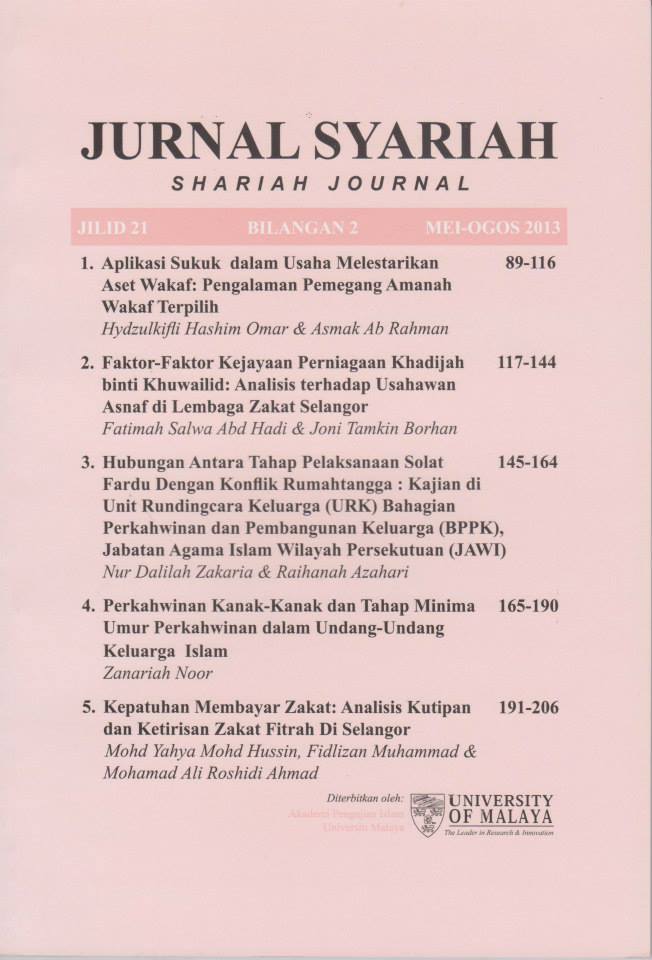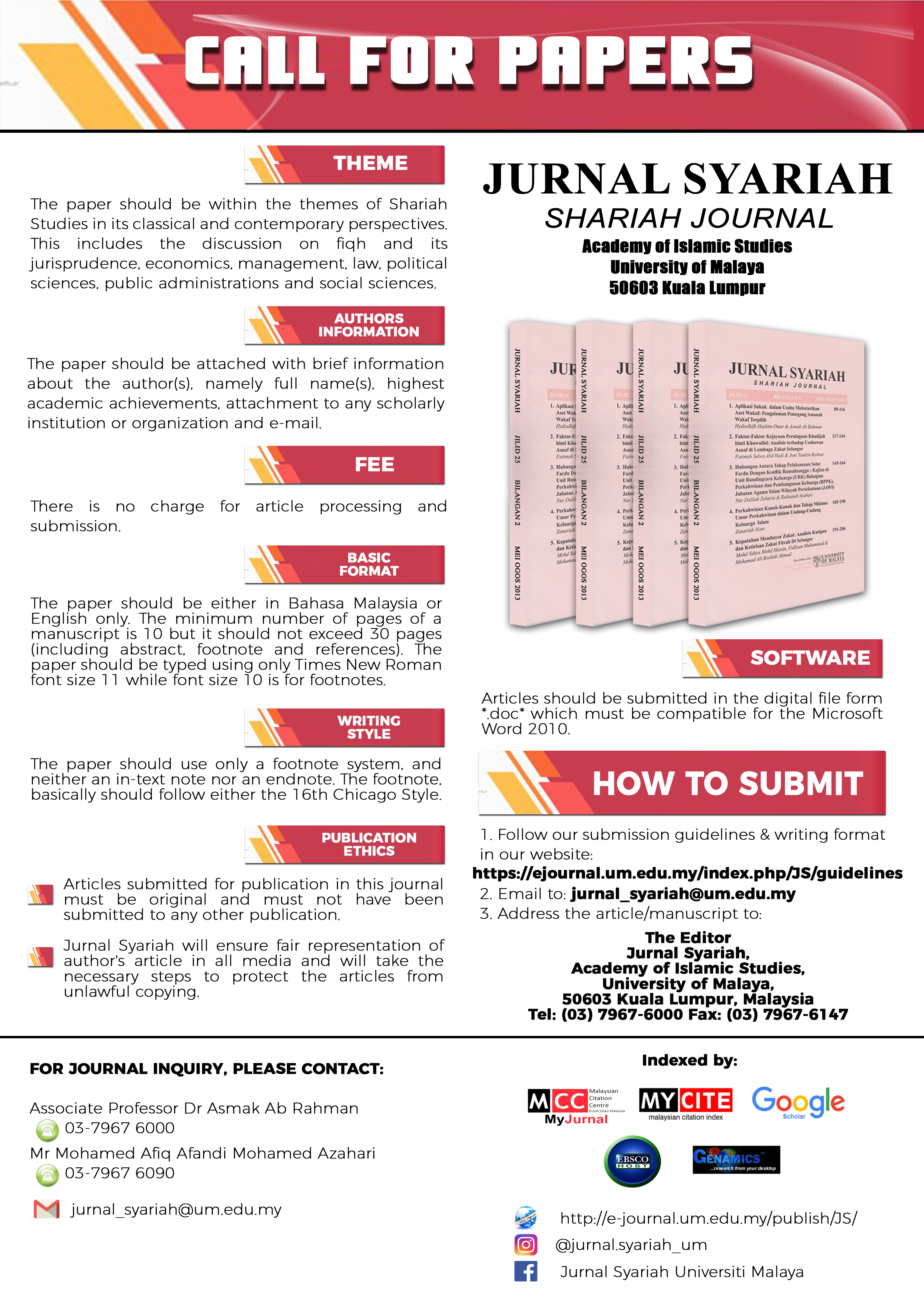APLIKASI SUKUK DALAM USAHA MELESTARIKAN ASET WAKAF: PENGALAMAN PEMEGANG AMANAH WAKAF TERPILIH
The Application of Sukuk in Sustaining The Waqf Asset: Experience of Selected Waqf Trustee
Keywords:
waqf asset, waqf trustee, waqf development, waqf financing, sukukAbstract
Waqf is an act of worship undertaken by Muslims to seek Allah’s pleasure. Many Muslims bequeath their property as waqf since they will continue to receive rewards even after their death, as explained by the Prophet Muhammad SAW. However, when too many waqf assets are contributed, the manager of waqf or the nazir is faced with the problem of developing the waqf assets due to a lack of cash. The waqif, for example, bequeaths the land to the construction of a mosque; however, the nazir has to find the money to build the mosque. In Malaysia, the State Islamic Religious Councils (MAIN) are the sole trustees or the nazir of each waqf asset. Therefore, waqf trustees should be pro-active and creative in establishing and managing endowment assets.
Currently, there are a considerable number of waqf assets that are not developed, which is a waste. With the development of Islamic Finance in Malaysia and other parts of the world, the nazirs of waqf should explore the possibility of using waqf as an instrument to obtain funding. A nazir of waqf should be proactive in seeking funding for the development of endowment assets to preserve the sustainability of such assets. Sukuk has been considered as a mode for financing waqf assets in order to preserve the endowment assets not being abandoned. Since waqf trustees in Malaysia have not yet adopted this method, the possibility of using sukuk to finance waqf assets may feasible. This study will investigate how sukuk has been implemented in financing waqf assets in other countries, namely Singapore and Saudi Arabia. As a result of financing waqf assets using sukuk by both countries, the value of the endowment asset has increased. Moreover it will help to create a new waqf asset.
Downloads
Downloads
Published
How to Cite
Issue
Section
License

This work is licensed under a Creative Commons Attribution-NonCommercial 4.0 International License.
COPYRIGHT: All rights reserved. Not allowed to be reproduced any part of articles and contents of this journal in any form or by any way, whether electronic, mechanical, photocopying, recording or otherwise without permission in writing from the Chief Editor, Jurnal Syariah.



















